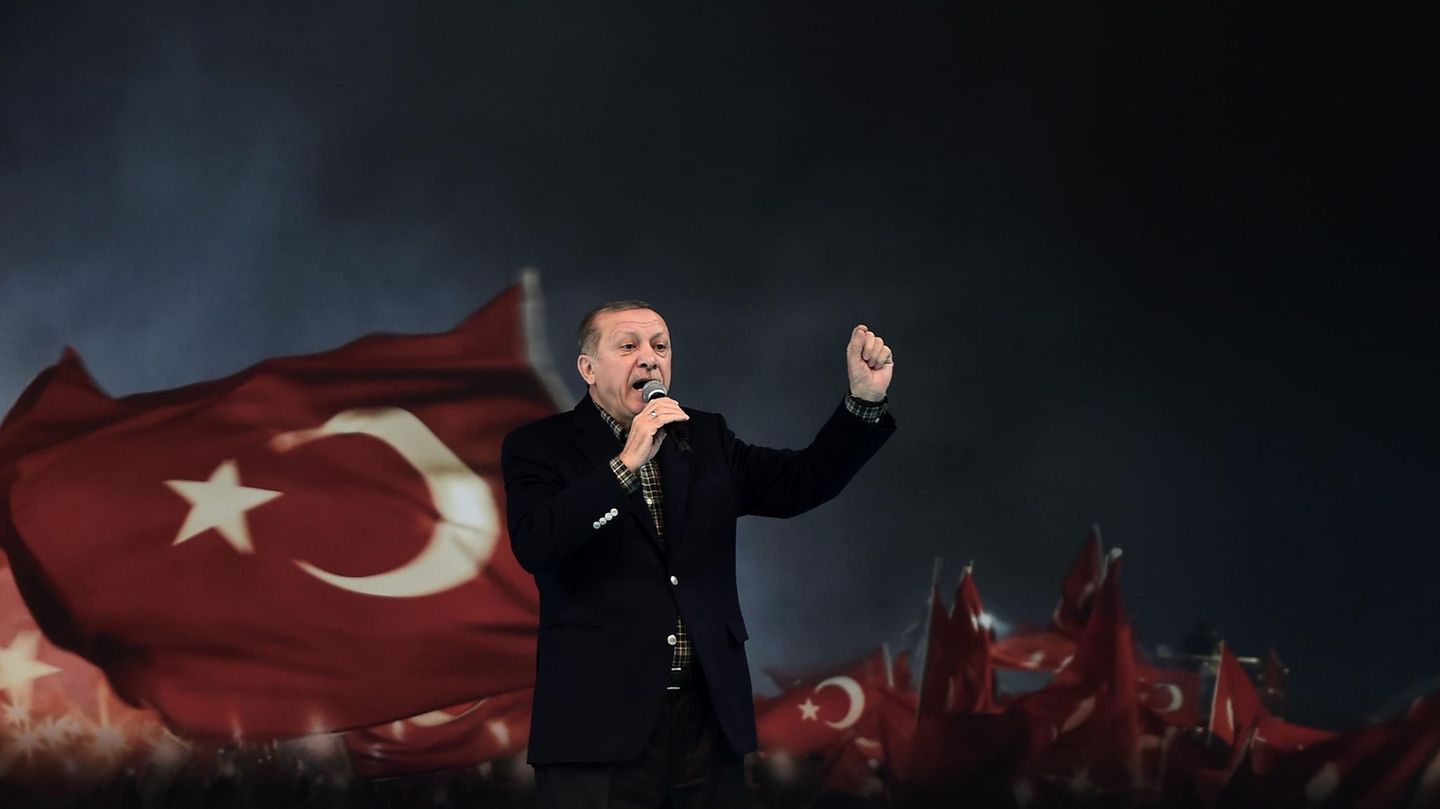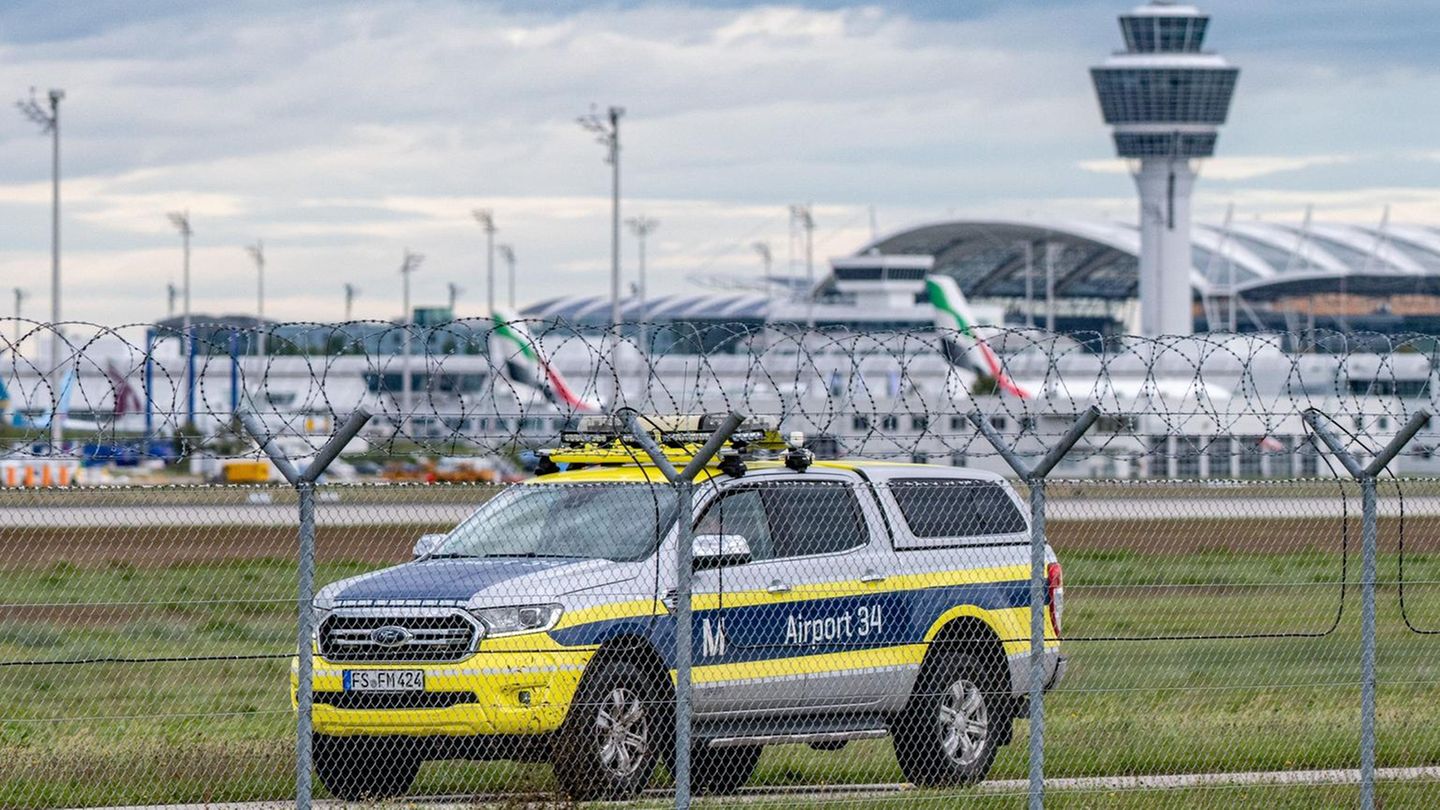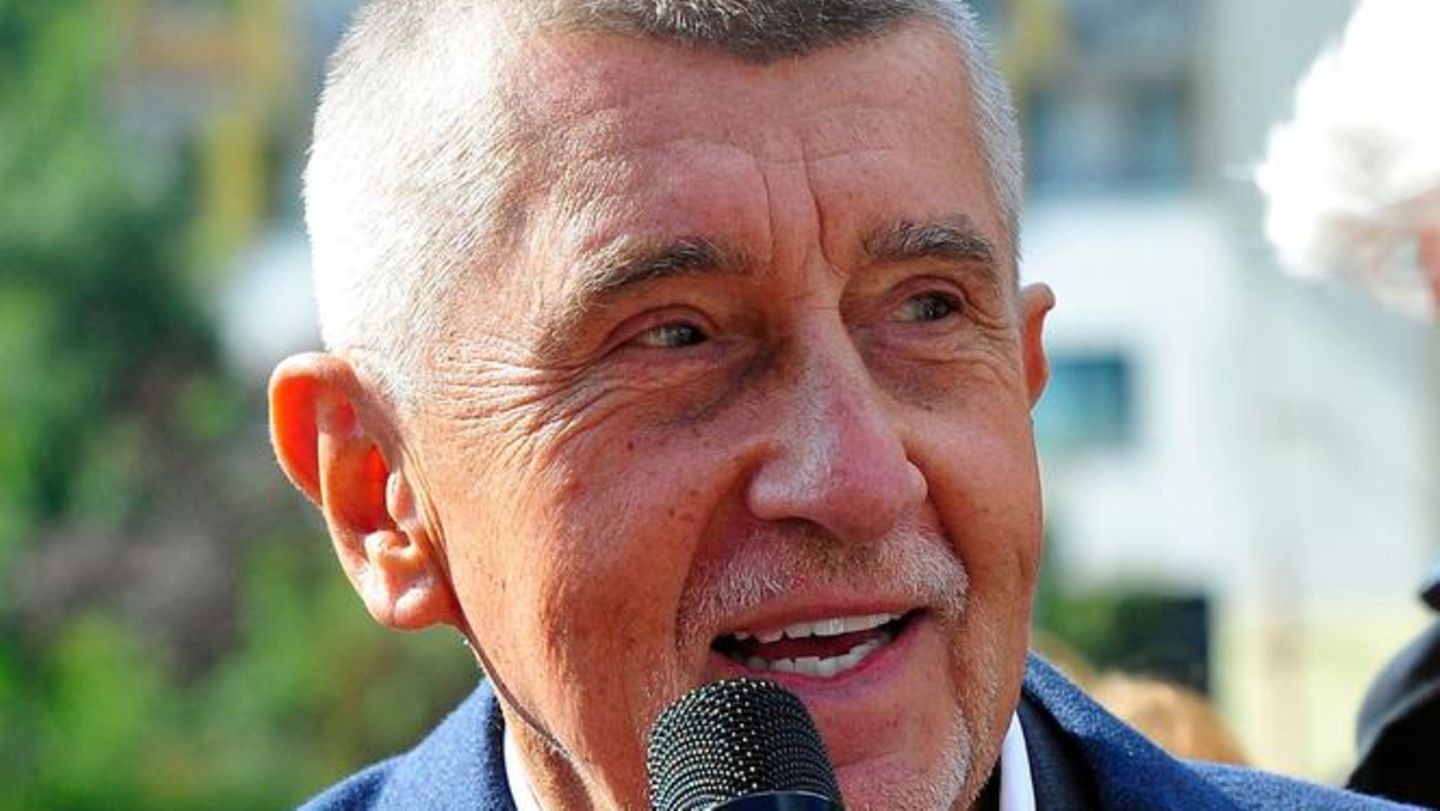The Turkish president wants to expel ten ambassadors, including the German one – but that has not yet been done. What’s behind Erdogan’s statement?
The Turkish President Recep Tayyip Erdogan has provoked Europe and the United States on a massive scale – the attacked countries, however, react cautiously. Government spokesman Steffen Seibert said on Monday that Erdogan’s statements were noted with concern and incomprehension. Even if Erdogan threatened to expel the German and nine other ambassadors on Saturday, it has not been carried out, emphasizes Seibert. The US embassy in Ankara tweeted on Monday that Article 41 of the Vienna Convention was still being adhered to. Among other things, he instructs diplomats not to interfere in the internal affairs of the receiving state. The Turkish presidential palace promptly said that the statements were received positively, as the state news agency Anadolu reports.
It looks like a slight rapprochement, although Erdogan was still raging on Saturday. In front of cheering supporters, he had complained about the ten ambassadors who last week demanded the release of the imprisoned cultural patron Osman Kavala. It was “impertinence” to give orders to Turkey. Then he announced that he would declare the German ambassador Jürgen Schulz and nine other diplomats undesirable, i.e. expel them. So Erdogan has risked a lot. Such a step would inevitably lead to the worst diplomatic crisis in a long time with Germany, Europe and the USA – and that shortly before the G20 summit in Rome. What drives the Turkish President to make such a statement?
Merciless confrontation with the West
Kavala, 64, who has been imprisoned since 2017, has long been a red rag for Erdogan. The philanthropist comes from a rich family of entrepreneurs. It finances civil society projects that advocate minorities and cultural understanding and also works with Europe. For Erdogan, Kavala is part of a foreign conspiracy aimed at overthrowing him. Kavala has had to remain in custody for years on account of ever new allegations. He is accused of attempting a coup as well as political and military espionage.
With their written declaration last week, the ambassadors insist on compliance with a ruling by the European Court of Human Rights. He had already demanded Kavala’s release in 2019, but Turkey is not implementing the judgment. Erdogan could have ignored the ambassador’s statement. But he decided against it from the start, had the diplomats summoned to the Foreign Ministry first and indirectly threatened expulsion on Thursday.
Observers also see this as the goal of using a foreign policy crisis to divert attention from problems in their own country. The president keeps falling behind in polls. His party, the Islamic-conservative AKP, would no longer have a majority in an election even with the ultra-nationalist MHP. The economy is weakening. Opposition leader Kemal Kilicdaroglu threw Erdogan on Saturday said that the economic crisis, for which he was responsible, was blamed on others. Absurdly, Erdogan himself is fueling the decline in the value of the national currency with his threats. The lira hit a new record low against the dollar and the euro on Monday.
The strategy – merciless confrontation with the West – had already worked out in 2017. Erdogan gained popularity in his own country as a result of the dispute over German prisoners and the bans on Turkish politicians from appearing in Germany. But this time the risk is much higher. He jeopardizes relationships with key trading partners. “The voters first look in their pockets,” writes analyst Murat Yetkin.
A battered president
But Erdogan is not just a strategist, he is also emotional and gives up when he feels cornered. The ambassador’s statement was viewed by Erdogan as interference in internal affairs – he did not want to let that sit on him. In the past, too, he had repeatedly brought conflicts such as the dispute over natural gas with Greece to extremes in order to persuade the other side to give in.
Opinions are divided about whether the declaration on Saturday was the next logical step or the result of an outburst of anger. There are indications that Erdogan’s order was not discussed. Turkish media report, for example, that the Ministry of Foreign Affairs has tried to dissuade Erdogan from his plan in the past few days.
The president could have gambled away this time. Observers have long wondered how keen Erdogan’s judgment is. In the end he looked battered – as if he had moved away from the people. When he was traveling to a forest fire area in the summer, he threw tea bags to local residents as he drove past, thereby irritating the locals. In the meantime, he had nodded off during an address in July.
Even the pro-government media don’t seem to know how to deal with Erdogan’s move. As expected, you are behind the President, but there are also pensive tones to be heard. “Sabah” columnist Mehmet Barlas points out that good relations with the West would serve Turkey’s interests rather than tensions. The pro-government columnist Abdulkadir Selvi makes it clear that no one has the right to reprimand Turkey, no matter what the price. But he also sums up: “The decision to expel is a matter of 15 minutes, and then to repair the relationship again could cost us 15 years.”
David William is a talented author who has made a name for himself in the world of writing. He is a professional author who writes on a wide range of topics, from general interest to opinion news. David is currently working as a writer at 24 hours worlds where he brings his unique perspective and in-depth research to his articles, making them both informative and engaging.




